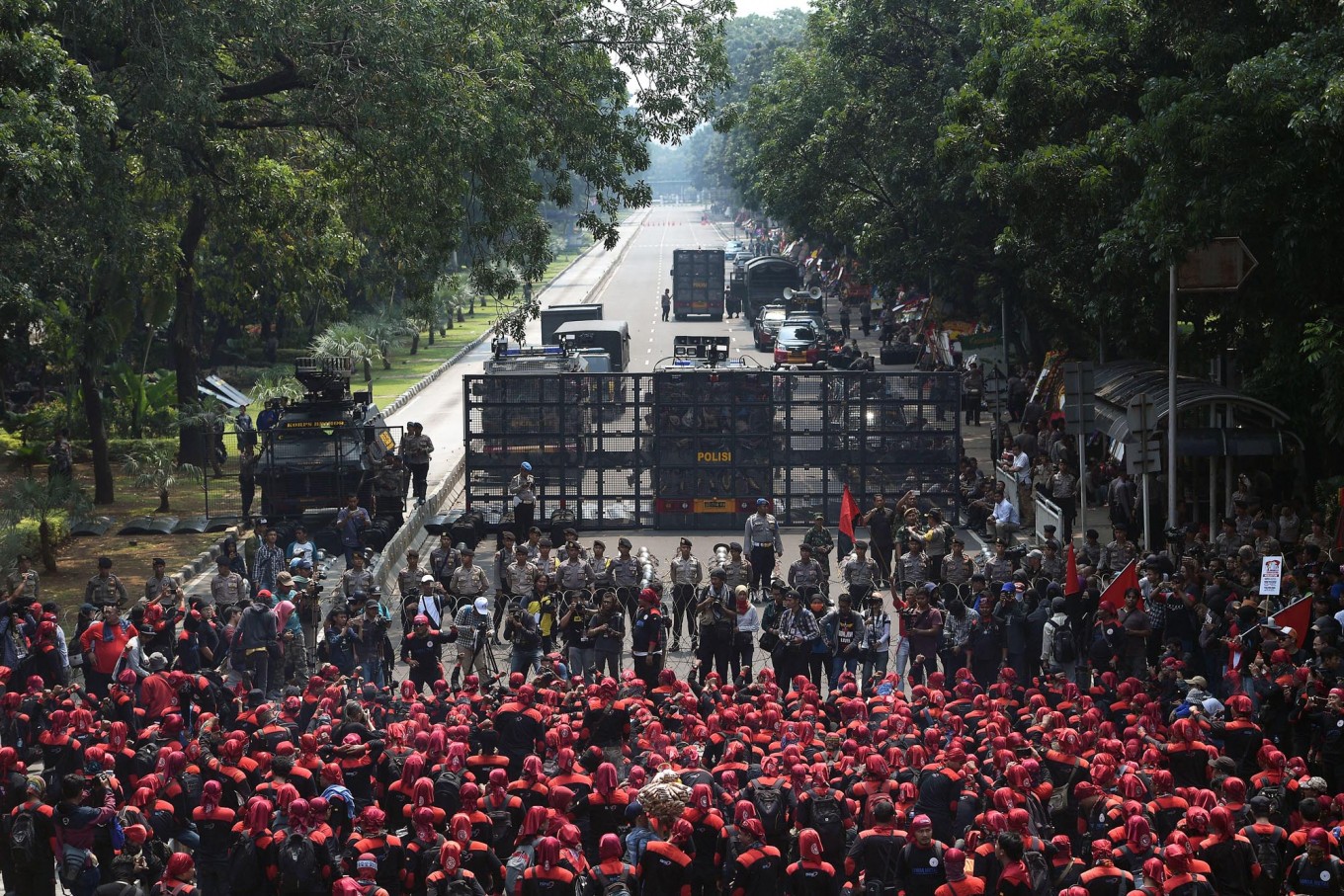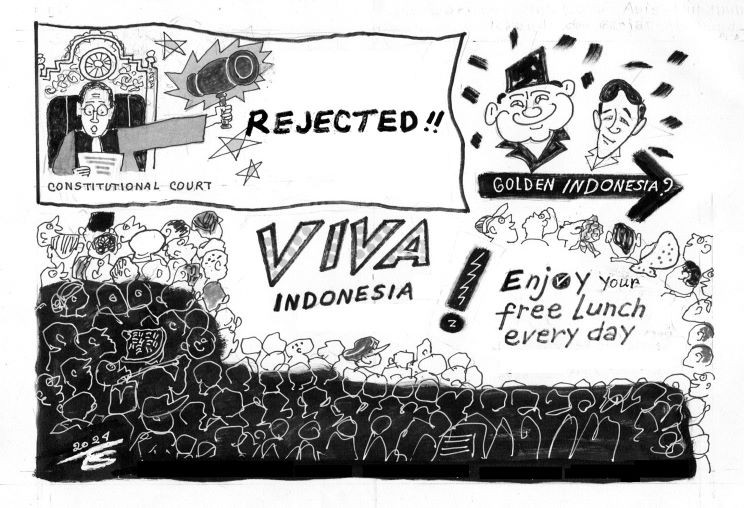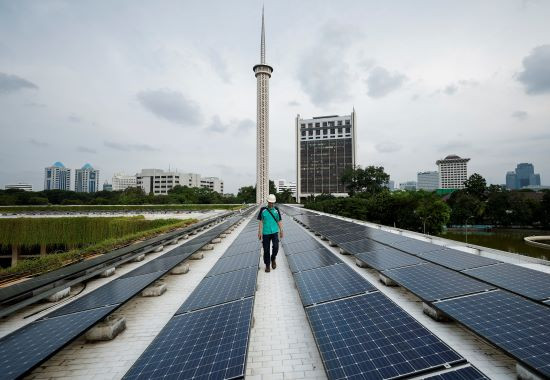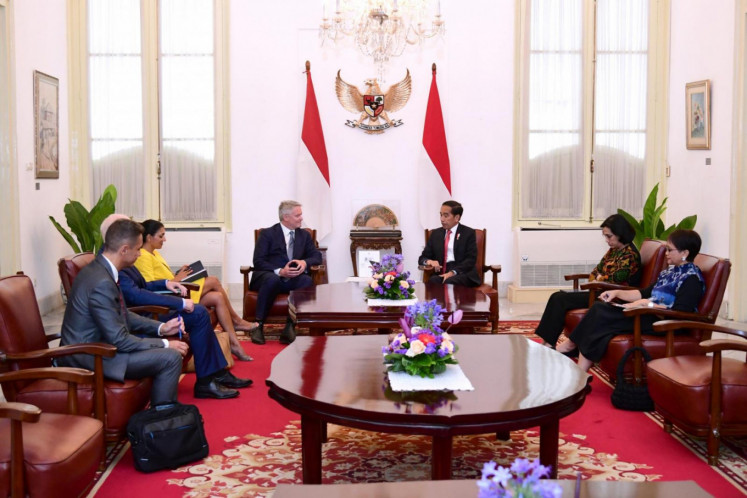Fair wage increase
Employers in particular cannot defy their responsibility to raise their workers’ minimum wage by citing their low productivity.
Change Size
 Police blockade part of Jl. Medan Merdeka Barat, Central Jakarta, on May Day last year. (Antara/Sigid Kurniawan)
Police blockade part of Jl. Medan Merdeka Barat, Central Jakarta, on May Day last year. (Antara/Sigid Kurniawan)
A
lthough the increase in the new regional minimum wage (UMR) is only an annual adjustment to workers’ monthly incomes, it has continued to draw protests from both employers and workers.
Labor unions say a fair increase would be about 20 percent, arguing the hike in the minimum wage is too small and would be an ineffective way to plug price increases. The workers insist that raising their wages based on the inflation rate and the economic growth rate does not reflect actual conditions.
For the employers, the increase will further inflate their operating costs, which would in turn weaken their competitiveness in the global market. They are always reluctant to increase the minimum wage in line with the government’s policy, saying the workers’ productivity rate is among the lowest in Asia.
According to Government Regulation No. 78/2015 on wages, the provincial administration must announce the new regional minimum wage on Nov. 1 every year or two months before the wage adjustment comes into effect. For this year, the Manpower Ministry has decided to increase the UMR by 8.03 percent.
With the adjustment, the new UMR for Jakarta, for example, will reach Rp 3.94 million (about US$260), an increase from Rp 3.64 million, while the UMR for West Java will range from Rp 1.55 million to Rp 3.55 million.
The negative reactions from both the employers and unions are not surprising, but they should be aware that the current formula in determining the new minimum wage is considered the most suitable for both parties. Employers in particular cannot defy their responsibility to raise their workers’ minimum wage by citing their low productivity.
Rather than helping workers fulfill their wants and needs, the annual minimum wage hike is just a mechanism to adjust the workers’ purchasing power, which declines as a result of an increase in prices. The productivity rate of the workers, which is lower than that of their counterparts, is another story. Productivity is a national issue and can only be solved through a long-term program that involves many government institutions such as the manpower, industry and education ministries as well as universities and vocational schools that are assigned to prepare young people to enter the labor market.
As often reported, a mismatch between industry demand and the skills of existing job seekers remains a problem.
Hence, the Manpower Ministry and related government agencies as well as the industrial sector should be able to find a short-term approach in dealing with the problems. The ministry should, for example, further expand its vocational training centers not only in industrial centers in Java but also in other parts of the country.
We consider that, under the existing formula, the minimum wage increase is fair enough and should therefore be honored in order to create a positive atmosphere in the country’s industry sector. A business-friendly environment matters as both the employers and workers are facing tougher challenges ahead as a result of the global crisis.









